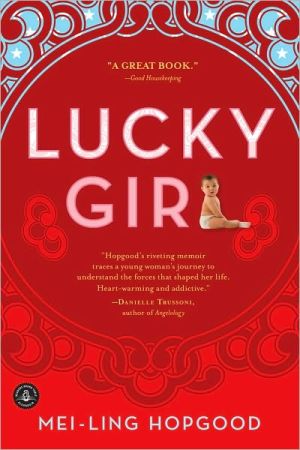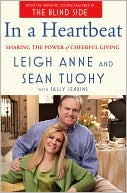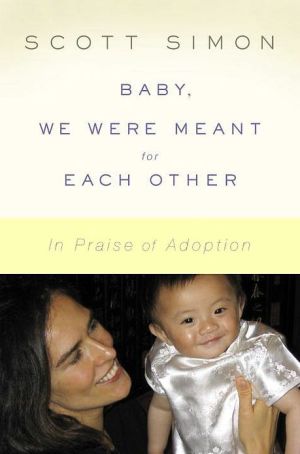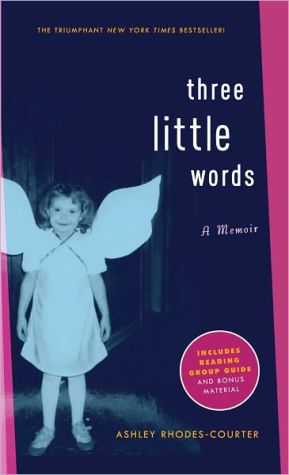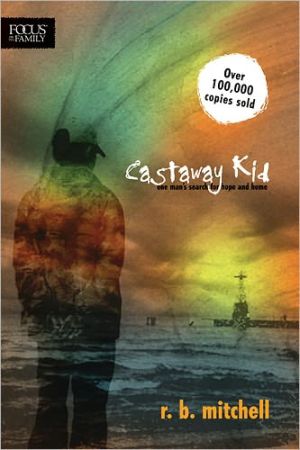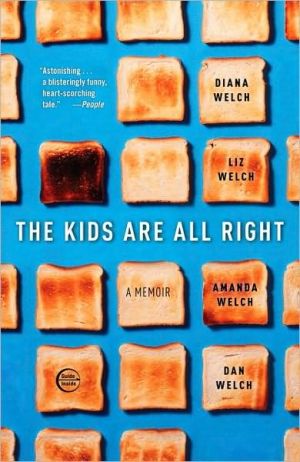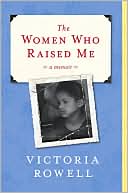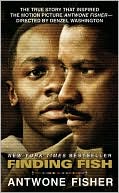Lucky Girl
Adopted when she was a baby, Mei-Ling Hopgood grew up in the Midwest and was never really curious about her Asian roots. Then one day, when she was in her twenties, her birth family came calling-on the phone, on the computer, by fax-in a language she didn't understand. The Wangs wanted her to return home. But this unexpected reunion has a price: she uncovers secrets that haunt them to this day.\ Delving into Chinese culture and tradition, Hopgood tells a tale of love, frustration, hilarity,...
Search in google:
Mei-Ling Hopgood was an all-American girl. She grew up in the Midwest, studied journalism at the University of Missouri, and became a reporter for a Michigan newspaper. Adopted when she was a baby, she was never really curious about her Asian roots. Then one day, when she was in her twenties, her birth family from Taiwan came calling—on the phone, on the computer, by fax—in a language she didn’t understand. The Wangs wanted to meet her; they wanted her to return home. But this unexpected reunion has a price, as she uncovers devastating secrets that haunt the Wangs to this day.Lucky Girl journeys into Chinese culture—its magnificent sights, war-torn history, and sumptuous foods—while revealing the personal suffering wrought by the country’s tightly held traditions. Mei-Ling’s is a tale of love and loss, frustration, hilarity, deep sadness, and great discovery as she comes to understand the true meaning of family. The Barnes & Noble Review I suspect many adoptees have been told they were lucky at some point in their lives: fortunate to have escaped an unknown fate; blessed to have been chosen by a new family who loves them. For Mei-Ling Hopgood, self-professed "Lucky Girl," it seems less about being told than about arriving at the conclusion herself. Kismet was not lost on this sixth daughter of a poor Taiwanese farming family, given up just after birth. After eight months in the care of an American nun, she crossed oceans and continents to be placed in the arms of the Hopgoods, a forward-thinking couple who fell in love with the little, dark bundle immediately. Rather than grow up unwanted by a family on a single-minded quest to produce male offspring, Mei-Ling describes an idyllic childhood, as a treasured daughter given every opportunity to succeed. But Mei-Ling never dwelled on her past, so it's a surprise when it comes to find her at age 23, at the beginning of her career as a journalist. With the skilled objectivity of a reporter, she chronicles a journey that takes her back to the welcoming bosom of her birth family and to Taiwan, over a complicated landscape fraught with confusing emotions. Though adoptees in reunion with their own birth parents will find plenty of familiar terrain in these pages, Mei-Ling's memoir goes well beyond an elated account of first impressions to cover the darker side of rejoining a family-in-progress. In an unflinching pursuit of truth, she pushes the Wang family's skeletons out of decades-long shadows and, in the process, learns a few things about herself. "You can't change your past, but you can choose where to go with what you are given." We should all be so lucky. --Lydia Dishman
Prologue 11 Come Back Taiwan 32 The Birth of a Family 193 Twisting Fate 344 The Odd Couple 445 Happy Days 666 The Return 817 A Perfect Reunion 1018 Meimei 1139 Through the Looking Glass 12210 Crosscurrents 13311 The Biology of Adoption 14512 Handmade Dumplings 15413 Daddy's Girl 16814 The Boy 18015 Mother-Daughter Banquet 19016 The Namesakes 21317 The Lucky Eight 233Epilogue 240
\ Bust”A journalist by trade, Hopgood pushes herself to ask tough questions. As she does, shocking family secrets begin to spill forth. . . Brutally honest. . . Although Hopgood’s memoir is uniquely her own, multiple perspectives on adoption saturate the book.” –Bust magazine\ \ \ \ \ \ Good Housekeeping"An award-winning writer recounts her experience as one of the first Chinese babies adopted in the West and her surprising trail back to the rural Taiwanese family who gave her away . . . A great book." —Good Housekeeping\ \ \ Detroit Metro Times“With concise, truth-seeking deftness of a seasoned journalist, Mei-Ling delves into the political, cultural and financial reasoning behind her Chinese birth parents' decision to put her up for adoption. . . Cut with historical detail and touching accounts of Mei-Ling's "real" family, the Hopgoods, Lucky Girl is a refreshingly upbeat take on dealing with the pressures and expectations of family, while remaining true to oneself. Simple, to the point and uncluttered of the everyday minutiae, Mei-Ling Hopgood nails the concept of becoming one's own.”—Detroit Metro Times\ \ \ \ \ \ Louisville Courier-Journal"Enchanting . . . Hopgood's story entices not because it's joyful but because she is honest, analytical and articulate concerning her ambivalence about and eventual acceptance of both her families and herself." —Louisville Courier-Journal\ \ \ \ \ \ Kirkus ReviewsBuenos Aires-based journalist Hopgood looks back at her reconnection with the Chinese parents who gave her up for adoption. After arriving from Taiwan as a baby in 1974, the author lived an all-American life in the Michigan suburbs with two adoring parents and two adopted Korean brothers. She had recently graduated from college and started work as a reporter at the Detroit Free Press in 1995, when she met the nun who had arranged her adoption. Sister Maureen persuaded the initially reluctant Hopgood to make contact with her birth family, and correspondence eventually led to a 1997 visit to Taiwan. An imperious father, a docile mother, six chattering sisters and an adopted brother welcomed her. She reveled in the intimacy of sisterhood and the cacophony of an extended family, and its secrets unfolded over time. Her biological father was obsessed with having a son, as Chinese tradition dictated. But the baby girls kept coming, so he pressured his wife to put up two of them for adoption-Hopgood and a younger sister who ended up in Switzerland. The boy they adopted in hopes that he would continue the family name was mentally impaired by a childhood fever. (When the author visited, he was still living at home, with few prospects for marriage.) After that, Hopgood learned, the father brought another woman to live with them, but she didn't bear a son either and eventually left. On a visit in 2004, the author had another shock. Her father had recently confessed to having a son with yet another woman, now dying of cancer, and bullied his wife into allowing the boy to live with them. Hopgood grew to love her sisters, but she had a harder time with her deeply flawed father and maddeningly passivemother; she still thought of her adoptive parents as her true mom and dad. She writes with humor and grace about her efforts to understand how biology, chance, choice and love intersect to delineate a life. A wise, moving meditation on the meaning of family, identity and fate. Agent: Larry Weissman/Larry Weissman Literary\ \ \ \ \ Kirkus ReviewsMei-Ling Hopgood "writes with humor and grace about her efforts to understand how biology, chance, choice and love intersect to delineate a life. A wise, moving meditation on the meaning of family, identity and fate." –Kirkus\ \ \ \ \ \ The Barnes & Noble ReviewI suspect many adoptees have been told they were lucky at some point in their lives: fortunate to have escaped an unknown fate; blessed to have been chosen by a new family who loves them. For Mei-Ling Hopgood, self-professed "Lucky Girl," it seems less about being told than about arriving at the conclusion herself. Kismet was not lost on this sixth daughter of a poor Taiwanese farming family, given up just after birth. After eight months in the care of an American nun, she crossed oceans and continents to be placed in the arms of the Hopgoods, a forward-thinking couple who fell in love with the little, dark bundle immediately. Rather than grow up unwanted by a family on a single-minded quest to produce male offspring, Mei-Ling describes an idyllic childhood, as a treasured daughter given every opportunity to succeed. But Mei-Ling never dwelled on her past, so it's a surprise when it comes to find her at age 23, at the beginning of her career as a journalist. With the skilled objectivity of a reporter, she chronicles a journey that takes her back to the welcoming bosom of her birth family and to Taiwan, over a complicated landscape fraught with confusing emotions. Though adoptees in reunion with their own birth parents will find plenty of familiar terrain in these pages, Mei-Ling's memoir goes well beyond an elated account of first impressions to cover the darker side of rejoining a family-in-progress. In an unflinching pursuit of truth, she pushes the Wang family's skeletons out of decades-long shadows and, in the process, learns a few things about herself. "You can't change your past, but you can choose where to go with what you are given." We should all be so lucky. --Lydia Dishman\ \
